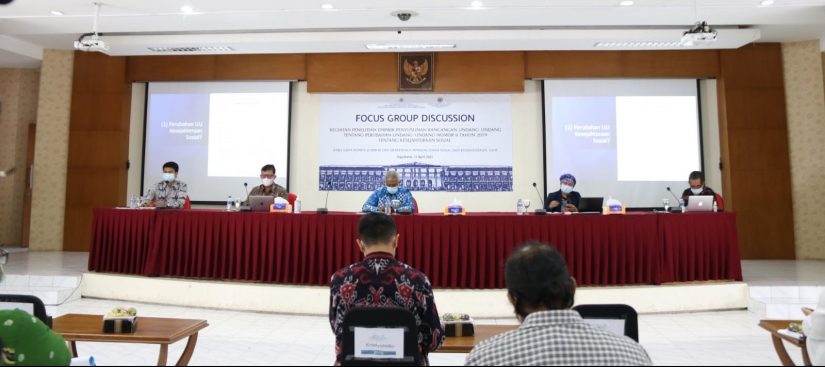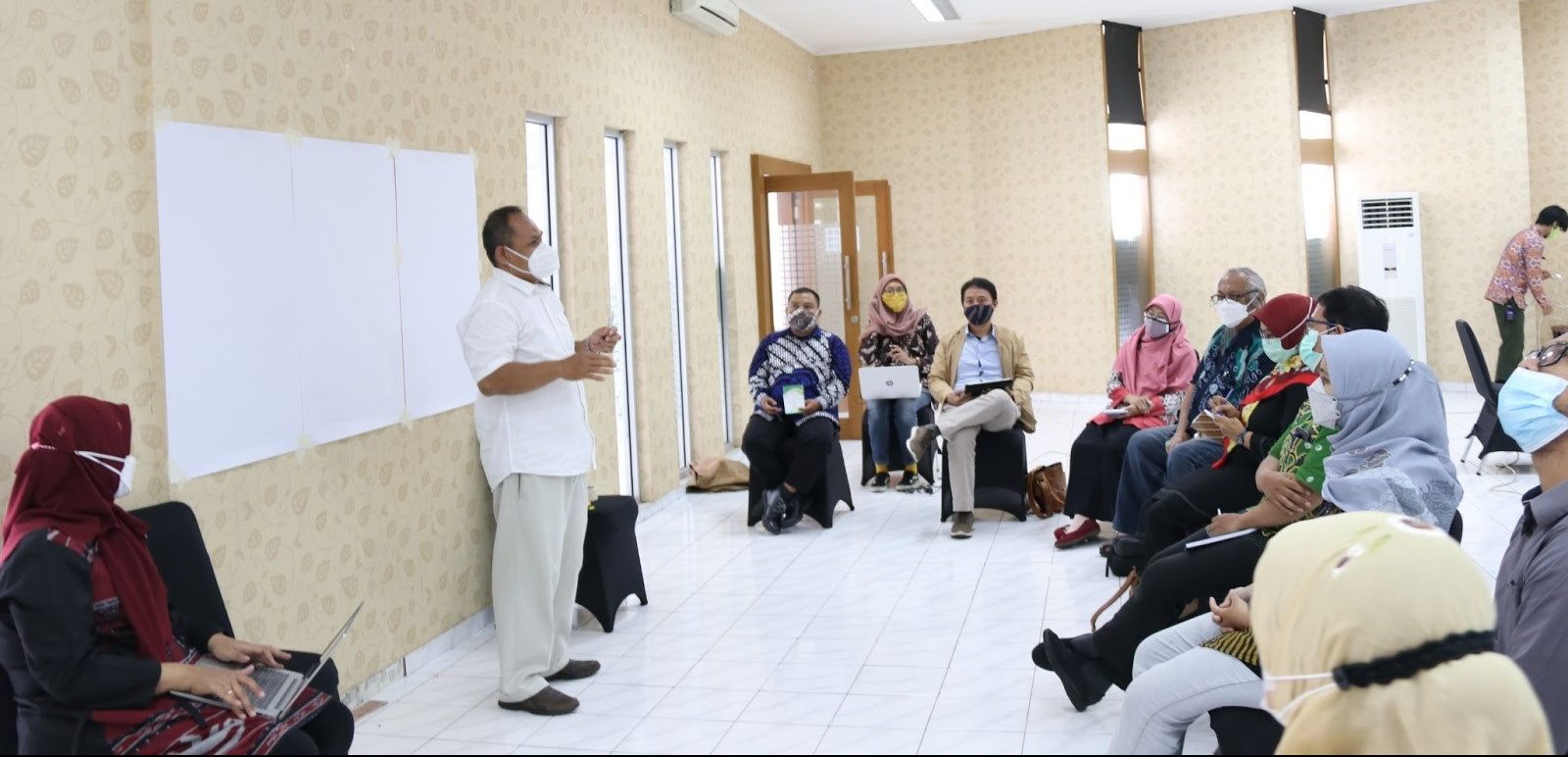
Tukino said that the need to change Law no.11 2009 is meant to underline the fact that protection is a part of the basic rights of citizens, keeping in mind that social welfare is a part of the national development program. He also explained that there is a mindset shift of the social welfare program from “centrist” to “participatory”. “Until now, the social welfare program is seen as a generosity from the government, when really it should be a part of the citizen’s basic rights,” he said. Other than that, in the aspect of implementation, the social welfare protection program is seen as not fully comprehensive and adaptive, so there are still several problems about the impact of the program that have not significantly solved poverty.

In order to dig for information and ideas as a foundation of the construction of the law, the FGD participants are divided into two big groups. Facilitated by the team from the Department of Social Development and Welfare UGM, the participants voiced their arguments by considering both the academic and practical aspects. Several problems from the analysis of the main problem to problems about the implementation of the social welfare programs was heard in the FGD.
First, there needs to be a redefinition of social welfare that takes into account locality, generational needs, rural-urban, makro (fulfillment of basic needs, management of social problems, optimization of social opportunities), and micro. The second point has to do with actor analysis as the interveners (state, society, family, individual). Third, the mechanism of data collection needs to be more participative. Fourth, there needs to be a focus on indegenous and local wisdom as a part of the social welfare principles. Fifth, there needs to be a more inclusive program planning and a guarantee that there are no citizens that are excluded. Sixth, the need to prevent overlapping between regulations and sectoral ego that is also in line with bureaucratic mechanisms that oftentimes hinder the contribution of social institutions in solving social issues. Seventh, the need to solve the issue in a multi-disciplinary manner by creating a partnership between government, civil society, and private entities.
Other than the points mentioned above, the FGD also recommends the positioning of aid receivers as a subject instead of an object. This is in line with Suzzana’s opinion, that the perspective that aid receivers are subjects can empower them. Hence, the subsidy given by the government can be directed towards productivity subsidy, instead of simply charity. In other words, the empowerment principle needs to be implemented in the social welfare process.
